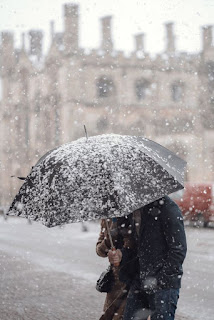Before
buying or renting products from us you need to know about the key features and
need to decide which is better fit for you.
For
better fit we Hyyra helping you stick for one decision.
In
this post we are specifying the features and some description about two top brands
of cameras.
Canon
vs Nikon
Key
comparisons
·
Sensors
·
Speed
·
Operation
·
Video
quality
Sensors: - Most
of Nikon’s latest DSLR's use a new sensor design that allows them to eliminate
the optical low pass filter without an abundance of moire, or distortion in
fine lines and patterns. The filter is one more thing for the light to pass
through before hitting the sensor, so eliminating it allows the camera to pick
up more details and perform a bit better in low light.
Canon’s
latest DSLR's, on the other hand, seem more focused on the megapixels. Most of
Canon’s DSLR's still use an optical low pass filter. The higher resolution
allows for larger prints and more cropping without affecting the image quality.
While
the two are focusing on different areas of sensor technology, they are simply
different, there’s no right or wrong answer.
Speed: -
Canon
and Nikon come in pretty even as far as the speed of their auto-focus, but there’s
a subtle difference in their burst speed rates. Speed is hard to come by in
DSLR's—where it’s not uncommon to find a mirror-less camera with a 10 fps burst
mode, DSLR's have more gear to move to take a picture and it’s tougher to reach
those high speeds.
Canon
tends to have faster high-end DSLR's on top budget for professional and sports
shoots. When it comes to the entry-level, more budget friendly models, however,
Nikon offers more speed.
Operation: -
Performance
between the two brands is pretty similar, but there are some noticeable
differences when it comes to operating each camera. The terminology on a Canon
is different from that on a Nikon, for starters.
There’s
also often a significant difference in battery life, with Nikon's generally able
to take more shots on a single charge. That’s not the case with every model,
but, more often than not, Nikon's have a better battery rating.
Video Quality: -
Canon,
traditionally, has offered better video quality sooner. They were the first to
develop a hybrid auto-focus system allowing the camera to refocus while
recording. Canon is known for their better auto-focus tracking while recording,
and they also have a selection of lenses designed specifically for video.
Nikon
even has some cameras with a 60-fps frame rate for smoother motion where the
equivalent Canon has 30 fps. Canon traditionally offers the better video, but
Nikon’s latest developments put them much closer.
When
making the choice between Canon vs. Nikon, here are a few things to consider:
What
is the most important thing in a camera to you? Speed? Resolution? Video
quality
What
does the manufacturer offer at your current experience level and for your current budget?
What
does the manufacturer offer that you might be looking to upgrade to in the
future?
While you probably won’t be looking at the same options in five years,
if they offer something in that range currently, they’re likely to continue to
making updates to that line.
What
lenses would you ideally like to add to your kit? Does that manufacturer offer
those lenses?
Canon
or Nikon? Neither one is a bad choice, which means it’s not an easy choice.























